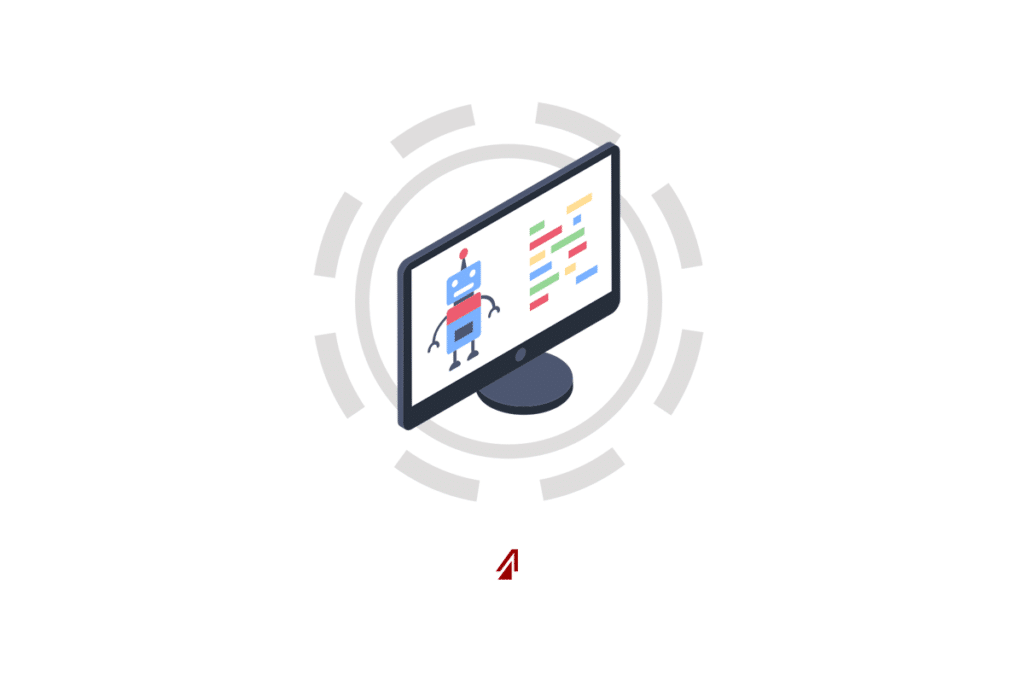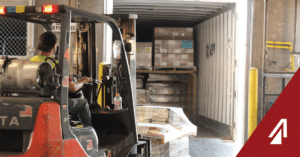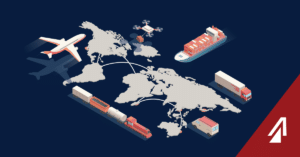“Are Techno-Brokers the Way of Future? Part 1,”shows that techno-brokers have a lot to offer the current state of logistics management. These online freight marketplaces offer fast and efficient technology to help in the labor shortage in logistics as well as improve the stakeholder experience. However, these new techno-brokers lack the depth of trusted carriers and pricing model that 3PLs currently have. Also, they are unable to offer the consistent load volume traditional 3PLs can. So – are techno-brokers the way of the future? Current data shows that techno-brokers are able to fix certain aspects of logistics management, but they cannot fix everything.
Pros
Techno-brokers’ platforms can fix certain aspects of what is wrong with logistics management today. For instance, their technology can help alleviate the need for more workers. According to Bureau of Labor Statistics, 7% of workers in the United States are in logistics, and the industry is supposed to grow over 21% in the next ten years. Nearly every industry relies on logistics to bring their products to market, and there are not enough people entering logistics to meet the job demands. Techno-brokers offer technology that can assist in many positions that people normally do – such as planning, customer support, and accounting positions. The apps make the end-users responsible for these jobs but gives them the tools to manage each function easily.
Techno-broker apps makes planning for shippers and carriers more convenient. Both can find each other easily and can interact through the apps instead of searching for one another by phone or internet. They are user-friendly and provide instant access to local carriers or freight. The information provided is up-to-date and in real-time. They offer a one-stop experience for the whole load process, and also allow for last minute load additions, up-front, no haggle pricing, and document transfer. Shippers can process tenders with the push of a button and can be stored in a cloud-network for later review, and carriers can have access to bills of lading and can easily transfer proofs of delivery.
Brokerage apps assist with customer support by giving shippers the ability to monitor aspects of loads that 3PLs may not have access to, such as a driver’s exact location at an exact time or remaining hours of service for the day. They use state of the art tracking technology; so, shippers can access it around the clock, and carriers can focus on driving instead of reporting in. Also, load changes can be easily monitored. Some apps help carriers with smaller fleets by providing fleet management tools and accounting software.
These apps can assist in accounting by providing carriers an easy way to manage their finances. Some apps have the accounting software built in and others provide free subscriptions to online software. These platforms make bill paying easier as carriers can be paid right away when they provide a proof of delivery – even if the shipper has 60 days to pay the brokers. Accounting personnel can review accurate tenders, stored in the cloud, and assign or deny accessorial charges, without dispute, depending on accurate tracking info provided by the application.
Automated processes like these help the logistics industry make up for the deficit in manpower it currently faces.
Not only do these processes assist with worker shortages, but they also make techno-brokers faster and often more efficient than traditional 3PLs. Loads can be booked more quickly and load management processes are more efficient. This efficiency comes from strict system processes users agree to when they join the techno-brokerage service. Each process has steps that must be completed in order to access the next step. (e.g. PODs are needed for payment, accessorial charges begin after 2 hours exactly, etc.) The systems are not influenced by bias or persuasion, so its rigidity makes it operate more smoothly. Whereas traditional 3PLs are more flexible and are made up of people who must manually work through each individual problem on a one-on-one basis. Techno-brokers are working on algorithms to help automate the problem solving aspect of logistics and make a more efficient way to deal with these day-to-day issues.
Taken all together, the convenience and speed Techno-brokers offer, gives them service that is difficult to match. Shippers can more easily take control of their loads and have instant access to needed information at any time. Carriers are given access to technology to simplify their management processes – especially with document management and billing. Overall, techno-brokers can use their technology to alleviate many normal pain points shippers and carriers experience, and assist in the shortage of human capital in the labor market.
Cons
The automation provided by the techno-broker model may assist in labor shortages found in logistics, but there are deeper issues that shippers and carriers have with one another that technology cannot fix. This is where traditional 3PLs can step in. 3PLs cannot be outmatched by techno-brokers when it comes to trust and relationships, price, or flexibility with shippers and carriers.
Trust is key in business relationships. Shippers need to know who is handling their freight and whether or not their specific requirements are being met. Techno-brokers cannot provide the same level of trust 3PLs do because they allow anyone to use their services. They have minimal barriers for entry into their apps and have loose sign-up standards. While some platforms use algorithms to specifically weed out bad actors, most platforms have no vetting at all other than requiring an active MC/DOT number, minimal insurance, and no bad review ratings. 3PLs often have stronger standards. Some 3PLs, like ProTrans, are C-TPAT certified and hold their carriers to that standard – or a standard that will not jeopardize that qualification. They have insurance and carrier ratings qualifications that are higher than techno-brokers are able to match.
3PLs operate with a tight network of trusted carriers that can be used on a variety of lanes to meet the shipper’s needs. They can offer more specialized options like HazMat trailers or air-freight. Mark Carroll, Product Manager at Descartes Global Logistics Network, says “Brokers, through years working with individual carriers and a great deal of “tribal knowledge”, have created large communities of carriers that have great value to their clients.” These large communities provide a greater number of carriers available everywhere at any one time.
3PLs support carriers better as well. Carriers can rely on 3PLs’ large network of loads to keep their drivers moving and earning money. Chris Jones, a Descartes Executive VP, says “The broker/carrier relationship is very symbiotic. They form working communities because they can rely on each other for business.” Techno-brokers cannot guarantee freight to carriers. Carriers have to rely on what loads are available in their area, and have to bid as low as possible to win a load. Shippers are not likely to form relationships with carriers and give them consistent freight the way 3PLs can. 3PLs use their relationships to offer carriers contracts to help keep the drivers moving and guarantee them an agreed upon rate.
Some drivers also struggle with the new technology the techno-broker apps provide. CEO of Next Trucking, a Southern-California-based techno-broker, Lidia Yan, says “We want to push them to the modern age of technology, but it does take time for drivers to learn the new technology.” Many drivers today are over 49 years old and are averse to change. Applications like Next’s claim to be user-friendly, but they still require an element of tech-savvy to download and use. This can be an issue as Yan says, “we’re talking drivers over 50 years old who have never used a mobile app, who don’t even have Facebook.” Next Trucking provides a customer service team to assist drivers, but many other techno-brokers do not. Traditional 3PLs have live-customer support around the clock to assist drivers. Some 3PLs have begun to implement more technology, but most only require cell phone or email use.
Techno-brokers specifically advertise their instant quotes and up-front, no haggle pricing as a benefit to users. This is a guaranteed way for shippers to over-pay for loads. The shippers are utilizing spot bidding for their loads the same as they would on a load board; only when they use techno-brokers, they cannot negotiate for lower prices. Carriers can take advantage of shippers in this situation. Factors like time of day, time of year, or if the area has a high freight to carrier ratio, drivers will often raise their rates considerably. Shippers have to move their freight so they will pay for what option they can. This approach is one way to save time, but it will ultimately cost the customer more money.
Using a 3PL, a shipper can protect themselves from market volatility by setting up contracts and knowing exactly what they will pay for each load. 3PLs also will set up contracts with certain carriers to run the loads at guaranteed rates – this not only guarantees carriers loads, but also helps develop a relationship between shippers and carriers. By using 3PLs, shippers can secure the trusted options for their loads at a much better price than the open market will offer.
Additionally, 3PLs offer more flexibility than techno-brokers do. When a shipper needs to correct a load or change destination, 3PLs can re-route carriers or offer backup options if needed to accommodate last minute changes. They can accommodate last minute load additions or terminations and can provide service recoveries for any load failures.
Techno-brokers may appear to have an edge over traditional 3PLs with track and trace options. However, with new technology, like Macropoint and other automated tracking products, 3PLs can trace drivers easier than ever. The tracking operates through either the driver’s truck or cell phone so shippers can have instant access to information on their freight regardless of time or place. This type of technology is rapidly becoming standard for 3PLs as well.
Lastly, the automation offered by the techno-broker model cannot entirely correct human error because the end users are still humans. Techno-brokers can offer systems to limit the effect of human errors, but they cannot eliminate them. When mistakes take place, techno-brokers will need to utilize humans to arbitrate the disputes and settle any disagreements. This function is something 3PLs have been doing since their inception and have mastered. The human connection needed to accommodate both parties is something today’s technology is not capable of yet. Until it is, 3PLs will maintain that edge.
Is there a Middle Ground?
Yes – there is a middle ground. 3PLs today are rapidly working to incorporate new technology to their business to help smooth out the processes that were lacking before. Utilizing tools like Macropoint for automated tracking, for instance, is a way for shippers to access their information on demand and accurately 24/7. ProTrans has functions like EDI updates and the Hot Board tool to set up regular tracking updates and compile reports for sensitive freight – free to our customers.
Some 3PLs, like Active Aero or Omnitracs, operate in a similar way to techno-brokers like Uber Freight. They allow customers to search for trucks on various lanes, and present them with up-front, no-haggle prices that the carriers set themselves. The difference is, that they have a team of dispatchers to monitor and interact with both parties to make sure the operation runs smoothly. They also record each interaction with both parties to ensure data integrity and for review purposes later on.
So what does the Future Look Like?
The future is likely to be a combination of old and new. The logistics market will need technology to help compensate for lack of available workers. Shippers will need the ease and convenience of automation that techno-brokers provide. They will need the automatic tracking and updates on their shipments; as well as quick access to available carriers. But, they will require the human element offered by 3PLs. Shippers will need the trusted carrier networks and the pricing the 3PLs provide. Carriers will need the assistance in freight and fleet management that techno-brokers provide alongside the reliability and volume of freight 3PLs offer. They will also require customer support as they take time to adapt to the new technology that is driving the industry. Both will need the 3PLs to intermediate conflicts. The future will take these two ideas, remove the negative aspects, and form one cohesive unit that meet all stakeholders’ needs.



